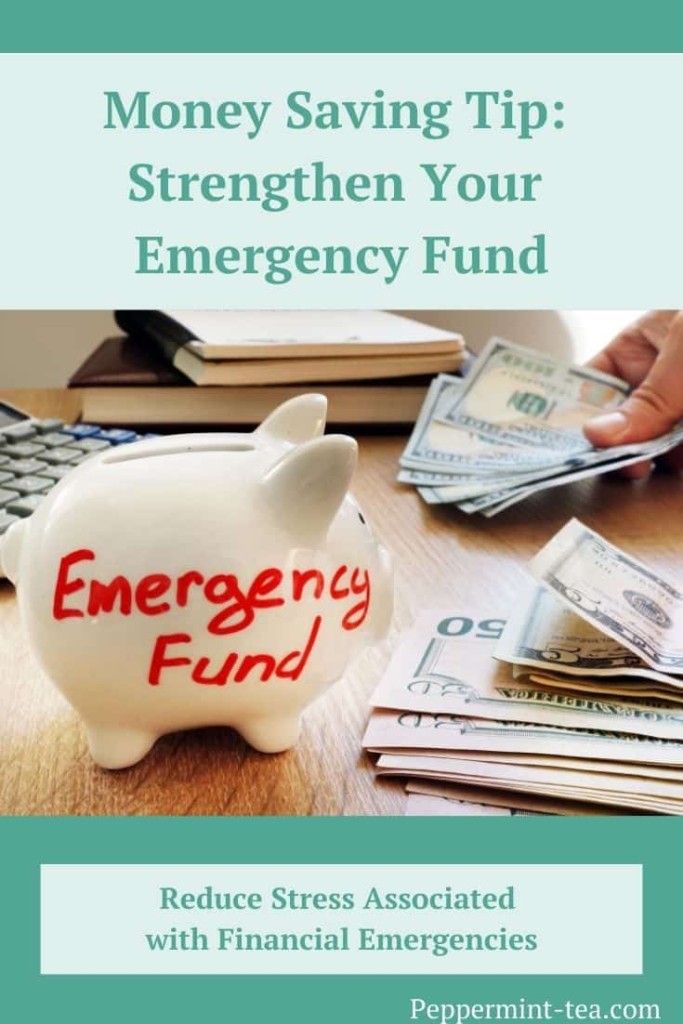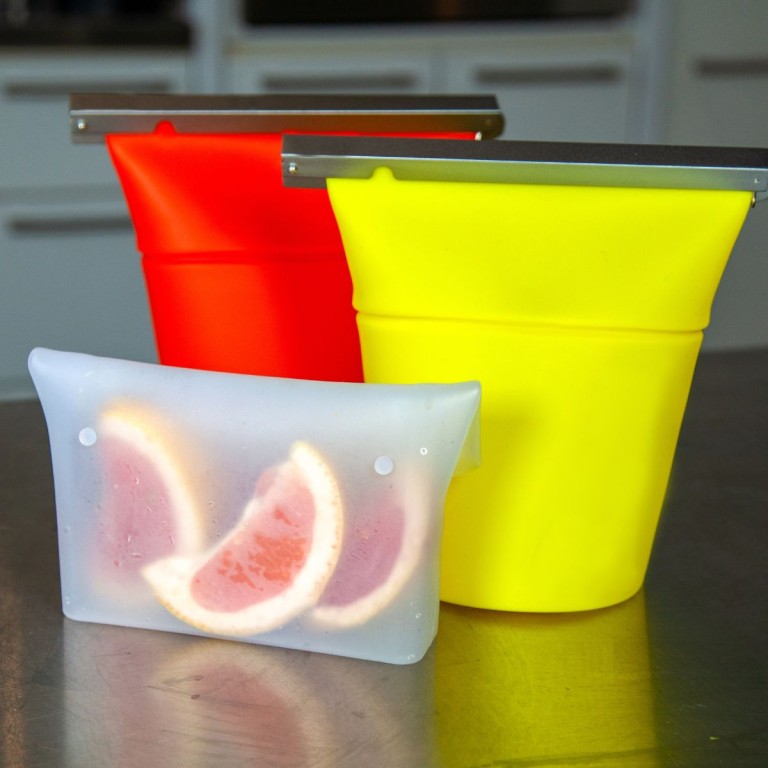Money Saving Tip: Strengthen Your Emergency Fund

Reduce Stress Associated with Financial Emergencies.
There’s no getting around it. Financial emergencies are stressful. It could be the loss of a job, a work slowdown because of a pandemic, an unexpected home repair, a medical bill or a car breaking down. Simply dealing with the impacts of these things is stressful enough, let alone the fact that trying to figure out how to pay for them often leads to a cascading financial fallout. The state of chronic stress that results not only makes it hard to make good decisions, it’s also bad for our health. That’s where an emergency fund comes in and why strengthening it as soon as possible will save us money in the long run and is imperative for our overall wellbeing.
**Important note: The information given here is not meant to be financial advice. I am not a financial advisor. This information is based on 25 years of personal money management experience. There’s no doubt that maintaining an emergency fund at all times has saved us what’s sure to have been tens of thousands of dollars and prevented us from what would have been plenty of sleepless nights. If you have specific questions about your particular situation, I highly recommend contacting a financial advisor.

Please Note: As an Amazon Associate I earn from qualifying purchases made through some of the links included in this post. You can read my disclosure policy here.
What is an Emergency Fund?
An emergency fund is meant to be cash that you can access quickly if needed. It’s not a nest egg, and it’s not a vehicle for necessarily making money. (Although any interest it’s making while hopefully just sitting there is a welcome addition.) It’s meant to pay for essential household repairs, doctor’s bills, to help cover costs while looking for a new job, or any other “unexpected” expenses that might otherwise have you turning to credit cards or taking out loans.
You’ll notice that I put unexpected in quotes. That’s because these things are all part of life. Life happens, and we know it’s going to. We may not know what form these emergencies will take, but the fact that they’re going to happen at one point or another is just the way it works. We can plan for them to some extent by having an emergency fund.
Because this money should be easy, but not too easy, to get to, money market or savings accounts are among the best and most accessible ways to save. That way it’s kept separate from your regular money but can easily be moved over and withdrawn if an emergency comes up. It’s also easy to put the money back when you’re able to do that.
How Much do You Need in an Emergency Fund?
The general rule of thumb for the amount to have in an emergency fund is enough to cover 3-6 months of expenses. If you’re starting at nothing or if the recent economic downturn has left you with little to no extra money each month, that can seem fairly overwhelming. Remember, 3-6 months is the ideal goal. The reality though is to start where you can. $500 – $1,000 is definitely better than nothing. If it means the difference between being able to pay for a car repair in cash rather than putting it on a high interest credit card, it can mean everything.
In fact, personal finance expert Rachel Cruze and money guru Dave Ramsey both suggest that if you have debt, start with an emergency fund of $1,000. Once you’ve paid off your debt, you can fully fund your emergency fund.
Ways to Save
Here are some of the many things that we’ve done over the years to give you some ideas on how to get started.
- Determine how much you need and what a reasonable amount of time is that it would take to save for it, then divide by that many months. The result is the amount of money that you need to put away each month to reach your goal.
- Skip buying coffee out. Invest in a good travel mug (affiliate link), make your coffee at home and take it with you.
- Take your lunch.
- Reduce the number of times that you eat out to once or twice a month.
- Go through your monthly expenses and find any other seemingly small ways that you can cut costs. It adds up!
- Treat your contribution to your emergency fund like a regular bill. Create a line item in your budget for it.
- Move money into your emergency fund automatically. You may notice it at first, but once you’ve adjusted your spending to only what you have coming in, you won’t miss it.
- If you have to use some of the money from your emergency fund, develop a plan right away for paying your fund back. While this doesn’t need to be a cause for stress, it should be one of the first things that you do once you’re out of the emergency situation.
- If you have an influx of money such as with a tax refund or for a birthday or Christmas, deposit most of it into your emergency fund. This will help you reach your goal faster. **Pro tip: Be sure and keep out a little for a small treat for yourself. You don’t won’t to feel deprived.
Bottom Line
As we’ve seen here. Having an emergency fund has everything to do with fostering good health and taking care of yourself. It doesn’t mean being pessimistic and only expecting the worst. It means being realistic and knowing that things are going to happen. Your health and mental wellbeing will thank you if you’re prepared.






